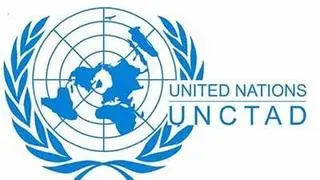To facilitate the reconstruction of a weak bank or its amalgamation with another bank, the Deposit Insurance and Credit Guarantee Corporation (DICGC) can henceforth defer or vary the time limit for receipt of repayments due to it from the insured bank or the transferee bank.
The aforementioned clause has probably been incorporated in the DICGC (Amendment) Act, 2021, so the monies the Corporation pays (up to the deposit insurance limit of ₹5 lakh per depositor) to the depositors of sick banks under “direction, prohibition, order or scheme (of amalgamation)” can be recovered at a later date.
This may encourage the takeover of weak banks, especially in the urban co-operative banking sector, by stronger banks.
Since April 1, 2015, 52 weak urban co-operative banks (UCBs), including the Punjab and Maharashtra Co-operative Bank (Mumbai), Kapol Co-operative Bank (Mumbai), Sri Guru Raghavendra Sahakara Bank (Bengaluru), and Rupee Co-operative Bank (Pune), have been placed under All Inclusive Directions (AID), according to the Reserve Bank of India’s latest annual report.
“The Corporation may defer or vary the time limit for receipt of repayments due to it from the insured bank or the transferee bank (into which transferor bank is amalgamated), as the case may be, for such period and upon such terms, as may be decided by the Board in accordance with the regulations made in this behalf,” per the amendment.
Before deciding on the aforementioned course of action, DICGC’s Board will “assess the capability of the bank to make repayment to the Corporation and for prohibition of specified other classes of liabilities from being discharged by the insured bank or the transferee bank till such time as repayment is made to the Corporation”.
Encourage amalgamation of sick UCBs
This important amendment to the DICGC Act coupled with the amendment to Section 45 of the Banking Regulation (BR) Act (enabling RBI to reconstruct — including via mergers, acquisitions and takeovers or demergers — or amalgamate a bank, with or without implementing a moratorium, with the approval of the Central Government) should augur well for the UCB sector, aiding reconstruction/amalgamation of weak banks.
As per the ‘Amalgamation of Urban Cooperative Banks, Directions, 2020’, issued in March 2021 by RBI, it may consider proposals for merger and amalgamation among UCBs under three circumstances, including when the net worth of the amalgamated bank is positive, and the amalgamating bank assures to protect entire deposits of all depositors of the amalgamated bank.
The second circumstance for considering proposals are when the net worth of amalgamated bank is negative, and the amalgamating bank, on its own, assures to protect deposits of the depositors of the amalgamated bank.
The third circumstance is when the net worth of the amalgamated bank is negative and the amalgamating bank assures to protect the deposits of all depositors of the amalgamated bank, with the financial support from the State government extended upfront as part of the merger.
RBI’s annual report has emphasised that speeding up the resolution of weak UCBs which are under AID is an ongoing process and the possibilities of using amended provisions of the BR Act are under examination.
If the restrictions on payment to depositors are removed by the RBI at any time before payment to depositors by the Corporation, and the insured bank or the transferee bank is in a position to make payments to its depositors on demand without any restrictions, the Corporation shall not be liable to make payment to the depositors of such insured bank, per the amendment.







Comments
Comments have to be in English, and in full sentences. They cannot be abusive or personal. Please abide by our community guidelines for posting your comments.
We have migrated to a new commenting platform. If you are already a registered user of TheHindu Businessline and logged in, you may continue to engage with our articles. If you do not have an account please register and login to post comments. Users can access their older comments by logging into their accounts on Vuukle.